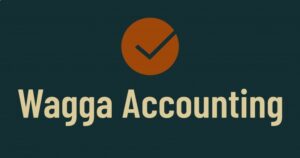A problem a lot of small-medium businesses face is what accounting system they should use. It’s very important that you choose the right one for your business, because otherwise managing cashflow and future planning can become unnecessarily difficult.
So what’s the difference between the two?
With cash accounting you keep record of the money coming in and out of your business but only once the payment has been made or received. This method focuses on money in only, not invoices and bills.
With accrual accounting you record transactions even if the actual payment has not been made. This method focuses on bills and invoices instead of cash received or disposed.
Pros and Cons of Cash Accounting:
Pros:
Easy to learn and implement: There’s less accounts to manage, and record keeping is straightforward
Shows current cash flow: With this method, you can always track how much cash you currently have because future expenses and earnings aren’t considered until you actually exchange the cash.
Easier Tax Management: Since income and expenses are only recorded when money is exchanged, you can control when the transactions are made. By doing this, you can legally increase your spending and slow down your revenue to reduce your tax liability.
Suitable for small businesses that take cash transactions.
Cons:
Limited view of income and expenses: it’s harder to calculate long term profitability with this method because future expenses aren’t considered.
Isn’t viable for some businesses: If you sell services or products on credit, you can’t use cash accounting.
Note: Businesses (individual, entity, partnerships or trusts) with an aggregated turnover of less than 10 million can use the cash accounting method.
Pros and Cons of Accrual Accounting:
Pros:
Transparency: This system shows expenses and invoices ahead of time and therefore gives a more accurate picture of a business’s expenses and revenue.
Enables strategic planning: Being able to see upcoming expenses and income, it allows businesses to plan for each.
Helpful for businesses that are not paid immediately: especially if you’re dealing with multiple contracts and large sums of money.
Cons:
It can be complicated: There’s a much more difficult learning curve in accrual accounting, with more processes involved than cash accounting. If you’re switching from cash to accrual, it’s a smart idea to hire a tax professional to help.
Resources and references:
Choose between cash and accrual accounting | business.gov.au. (n.d.). https://business.gov.au/finance/taxation/choose-between-cash-and-accrual-accounting
Kappel, M. (2022, October 25). Pros and Cons of Cash-basis Accounting | What You Need to Know. Patriot Software. https://www.patriotsoftware.com/blog/accounting/use-cash-basis-accounting/
What Is Modified Cash Basis? (2021, December 20). Investopedia. https://www.investopedia.com/terms/m/modified-cash-basis.asp
What Is Cash Basis Accounting? The Pros and Cons of This Method. (2022, September 6). Paychex.
https://www.paychex.com/articles/finance/cash-basis-accounting-pros-and-cons
Office, A. T. (2019, December 17). Choosing an accounting method. Australian Taxation Office. https://www.ato.gov.au/business/gst/accounting-for-gst-in-your-business/choosing-an-accounting-method/
